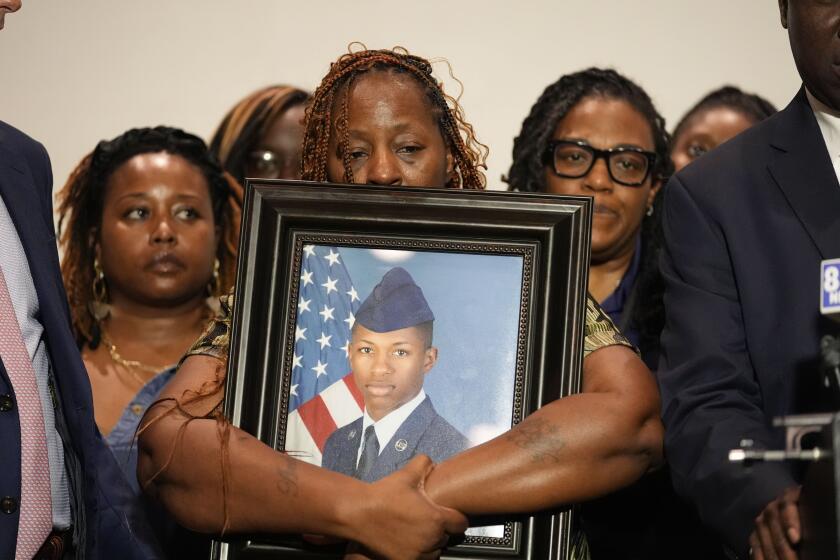South Africa Gets Some Upbeat News : Plan to repatriate exiles removes a barrier to constitutional negotiations
South Africa needs some good news. It has some: A major stumbling block has been removed to preliminary constitutional negotiations. The white minority government and the U.N. High Commissioner for Refugees have agreed on a humanitarian plan to repatriate as many as 40,000 exiles who fled to avoid prosecution for politically motivated offenses. Their homecoming will reunite families and soothe a divided nation.
Many fearful black and white South Africans fled to avoid being prosecuted for participating in the anti-apartheid movement. Some left more than 30 years ago after the government banned the African National Congress and other political parties.
The barriers that prevented their return began coming down a year ago. The African National Congress insisted on their return as a major condition to negotiations on a new non-racial constitution. The South African government agreed to their return, but that process was slowed by a narrow definition of a political exile and decisions made on a case-by-case basis.
In spite of that slow and tedious process, some exiles--including high-profile artists such as the singer Miriam Makeba and musician Hugh Masekela--began trickling back home. According to the South African Department of Home Affairs, about 700 exiles had returned as of last month.
That trickle may soon turn into a flood. The U.N. agreement provides a general amnesty for any exile whose offense fits within the broad international definition of a political crime. It also guarantees freedom of movement to those who choose to return.
To facilitate the homecoming, the U.N. is expected next month to set up an office in South Africa for the first time in 30 years. The High Commissioner’s office is well-suited to the task because of past experience in resettling large numbers of refugees. The U.N. office is also capable of raising money from other governments to pay for the repatriation, which could cost as much as $40 million. The United States has already agreed to contribute $4 million toward the cost of bringing South Africans home.
What will they encounter when they return? A proposed peace accord should reduce the factional violence that has claimed thousands of victims. That proposed peace agreement is expected to be adopted at a multiparty conference next month, and further pave the way for negotiations.
Not every South African exile will choose to return home, but the U.N.’s involvement removes a barrier to homecomings and to the crucial constitutional negotiations.
More to Read
Start your day right
Sign up for Essential California for news, features and recommendations from the L.A. Times and beyond in your inbox six days a week.
You may occasionally receive promotional content from the Los Angeles Times.






